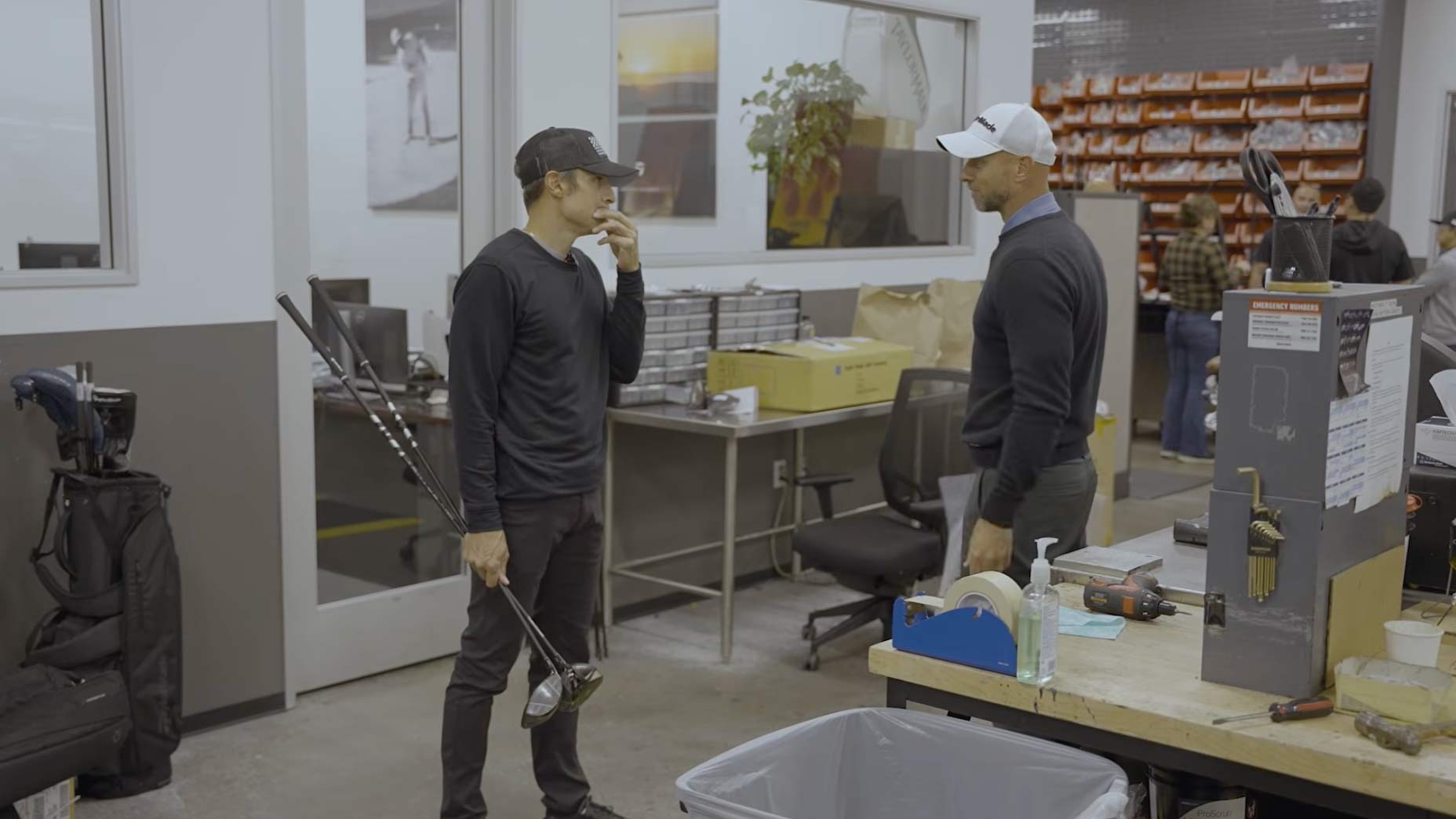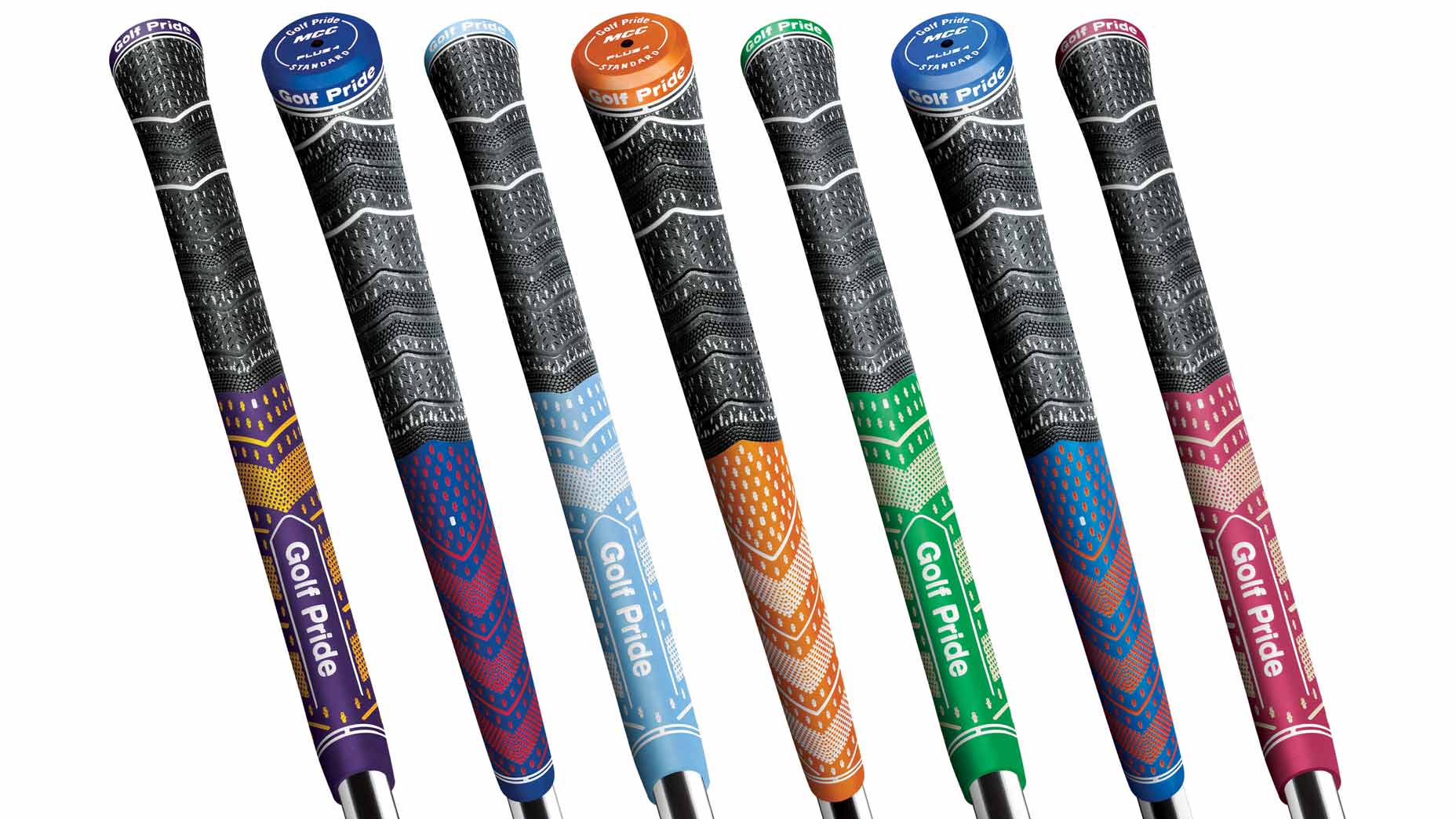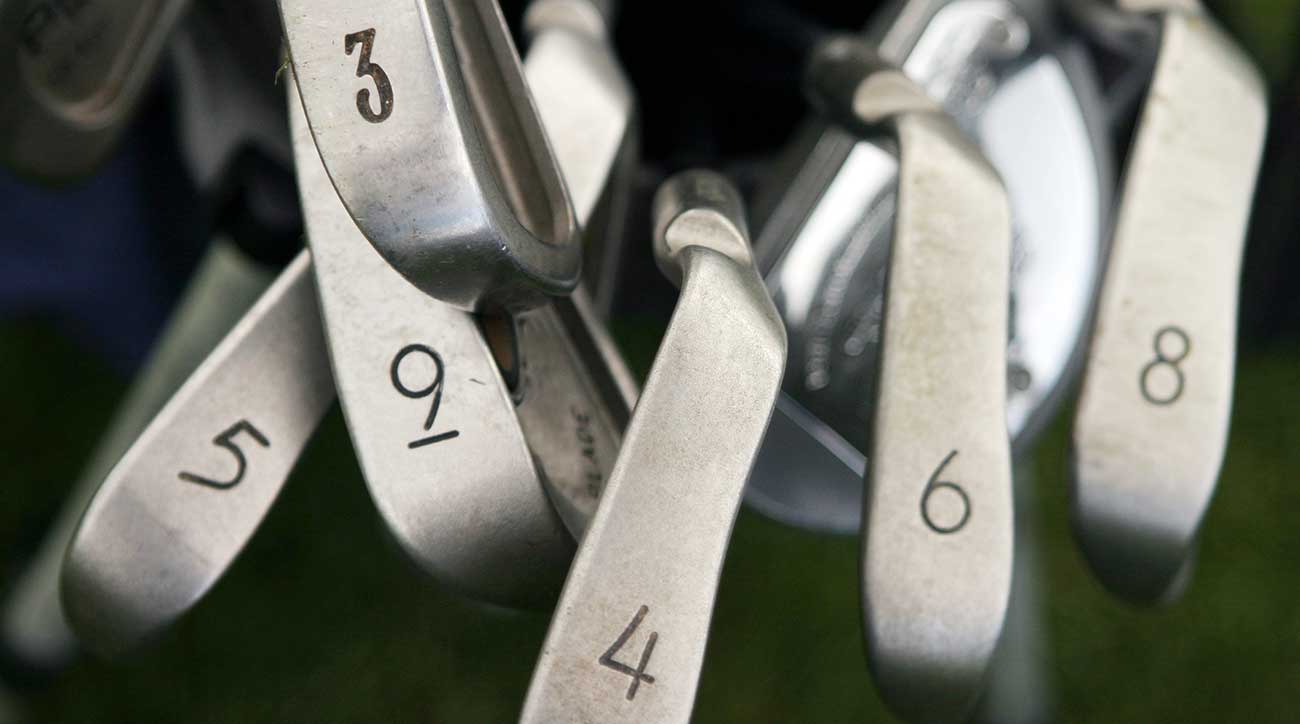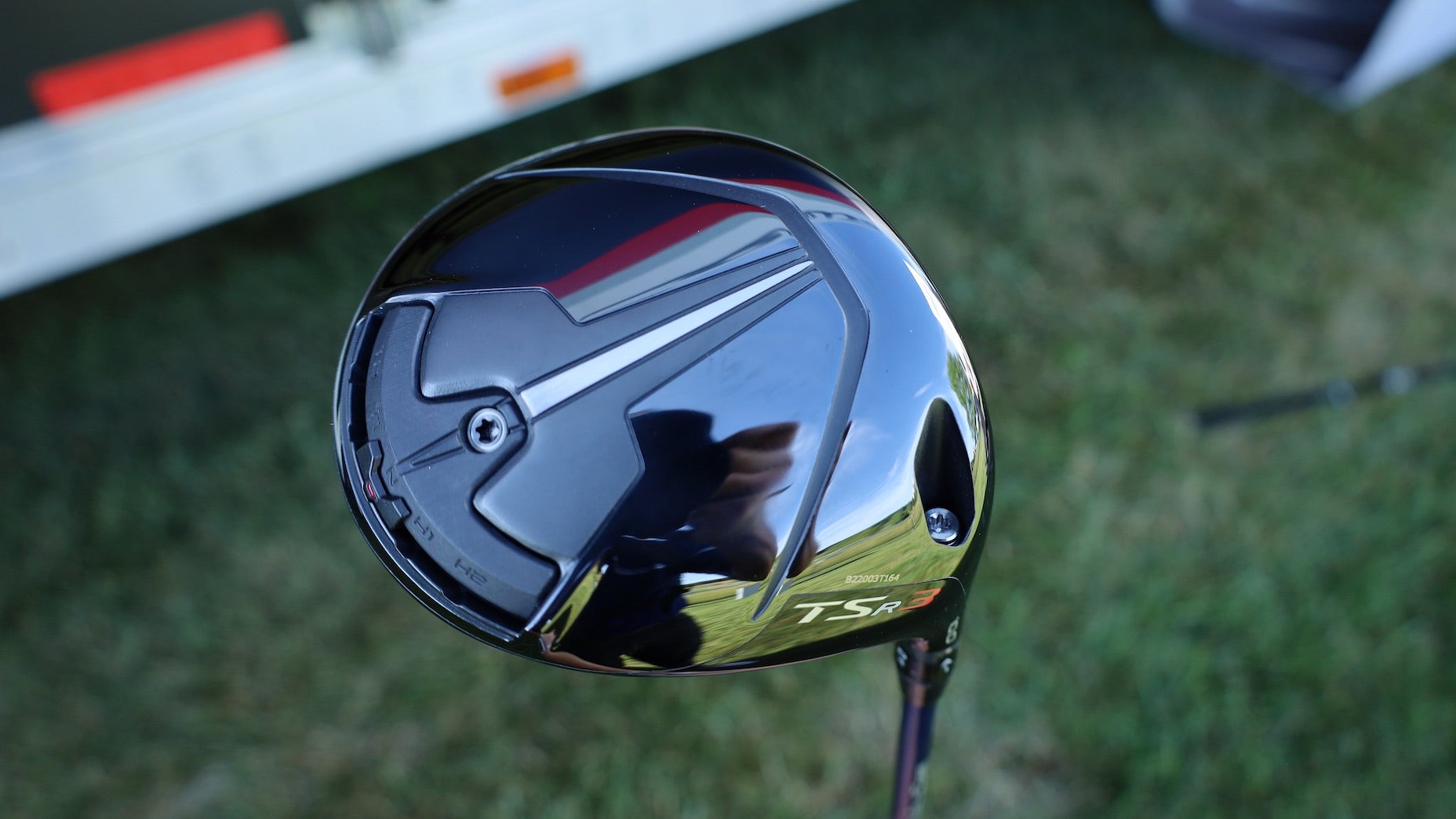I was on the road for most of last week capturing some good future content for GOLF.com and GOLF Magazine, and whenever I’m on the road, I try to duck into whatever local independent golf store I can find. About 10 percent of the time I end up finding some gem of a second-hand golf club, and I’m happy to report my recent trip to Eaton’s Golf Shop in Long Beach, California bore some juicy fruit.
The shop is a quirky and fun one, if you’re in the area. It’s packed to the brim with older second-hand golf clubs of all sorts, and has a particular fondness for unique putters.
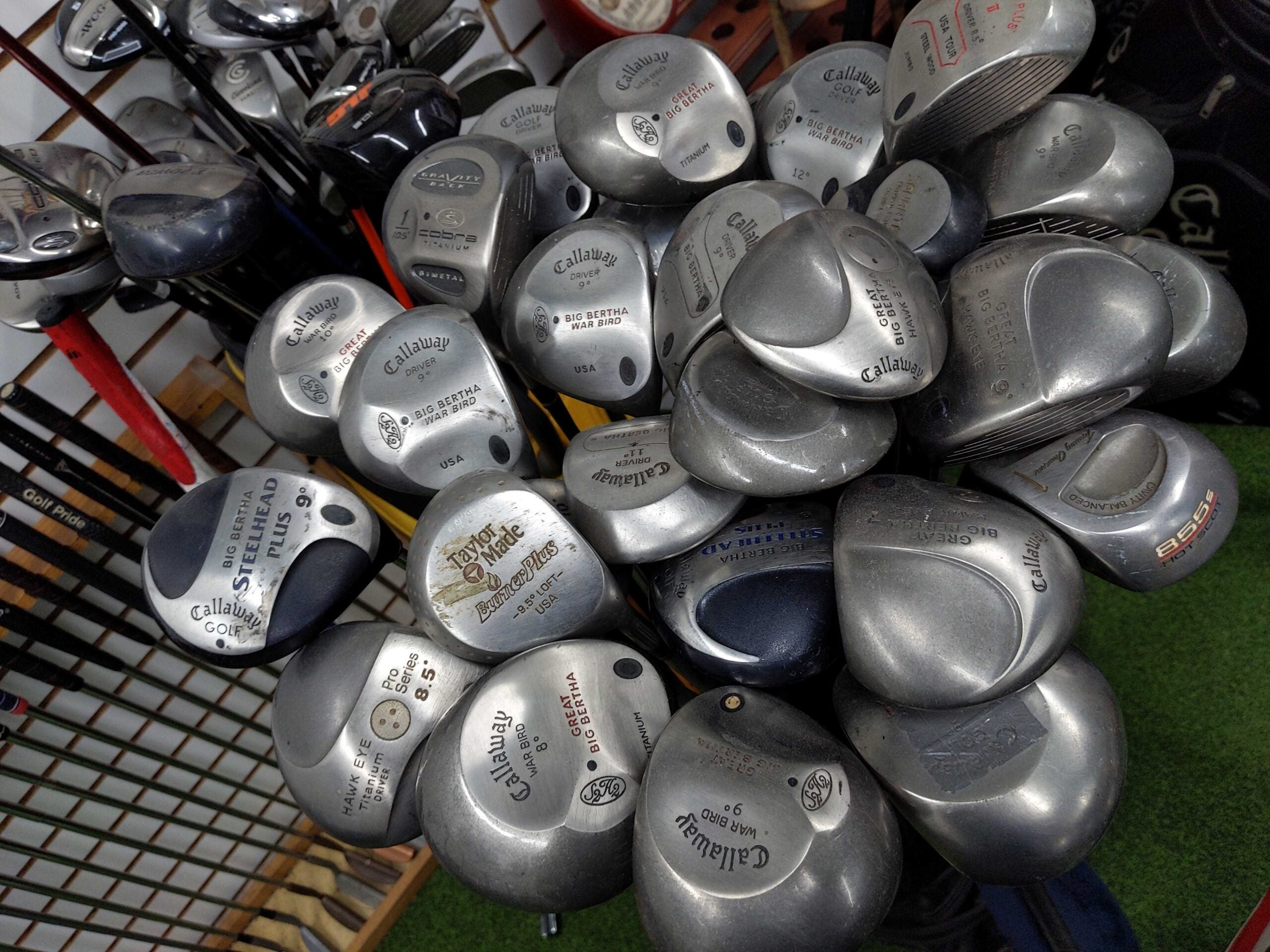
After tearing my way through a handful of them, I spotted a dulled copper version in the corner. It was pretty beaten-up: an old Titleist but not a traditional bullseye, though it sported the name. Interestingly it wasn’t a Scotty Cameron, either. Some quick googling found the model was part of the company’s short-lived milled bullseye series from just before Scotty joined the company.
Lured by the idea of the conversations that would start when somebody asked me what kind of old Scotty that was, and the long-neck design that made the putter face-balanced, I paid my $99 and made off with it.
Found this pre-Scotty Cameron, 1991 milled Titleist putter at a second-hand golf store earlier this week. Was too awesome not to bring home.
— LKD (@LukeKerrDineen) September 10, 2021
It's face-balanced, interestingly. Considering getting it refurbished. pic.twitter.com/YSdCSM4uGq
As you can see in my tweet, I was getting it professionally refurbished and still am, but some of these services require you to surrender your wand for up to 10 weeks. Too impatient for that when the golf season is still going, I wanted a more immediate solution. The putterhead itself is made from some kind of copper alloy, and when I looked up how to revive copper things, the internet experts told me I could mix a combination of white vinegar, flour and salt, all of which can be found in most kitchens.
There’s a few different recipes floating around but I used:
- 2/3 cup of white vinegar
- 2/3 cup of flour
- 1/2 cup salt
Once you assemble the mixture, give it a good stir until it becomes a smooth, thick paste.
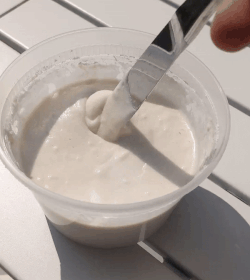
And once that happens, you simply cover the mixture in the material you’re trying to revive and leave it for a couple of hours.
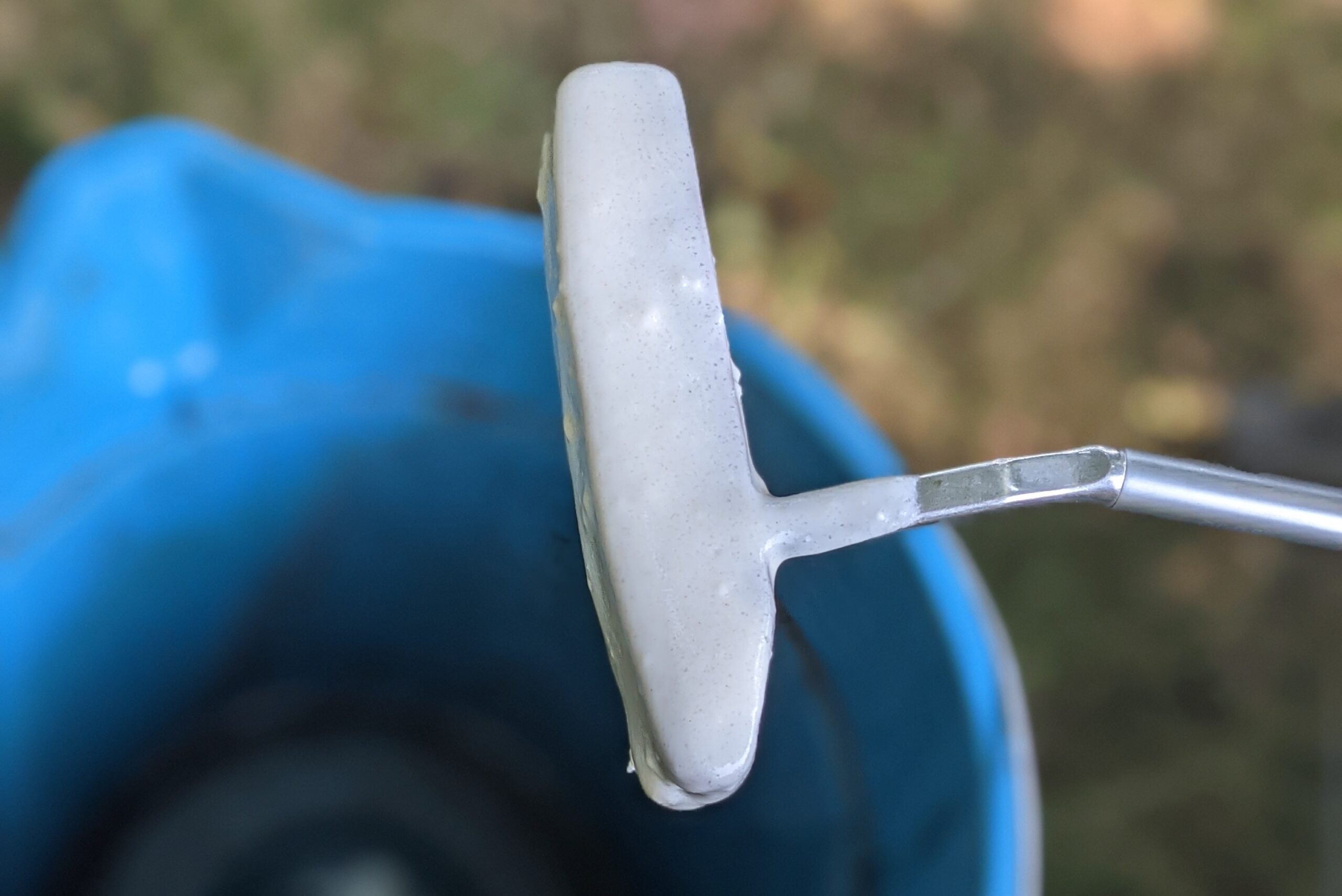
I gave my putter a heavy coating and left it for just over an hour, and truth be told, I was a little skeptical it would work. But once I rinsed off the paste mixture I was genuinely floored by the results. What was a dull brown had become a bright, burnt orange.
Update!
— LKD (@LukeKerrDineen) September 13, 2021
I used a magical formula of vinegar, flour and salt. Now it looks awesome.https://t.co/pfT9vUtdqf pic.twitter.com/FMQuXBwgjR
Apparently, the combination of the paste creates some kind of chemistry experiment that results in the copper being cleaned. Either that or magic. But regardless, my old putter looks new again, and all for the price of opening my kitchen cabinet and exploring the wonders within.


